Publié le
Dernière mise à jour de cette page le
ICT POLICY IS IN CRITICAL NEED OF ATTENTION IN AFRICA?
Information Communication Technology commonly referred to as ICT can be described as technologies used to gather, share and disseminate information using computers and computer networks. Policies are typically guiding principles designed to influence decisions or actions within organizations, governments, groups and/or individuals. ICT policy can be national, regional or international covering telecommunications, media (TV and radio) and the internet. The different levels have different decision making bodies and may at times have conflicting policies. Apart from improving consistency in the decision making process good policies also save time and are precise easy to understand and apply.
ICT policies are in critical need of attention in Africa because they affect the lives of a nation’s citizens so lack of sound policies will most probably affect the development of effective ICT infrastructure. Governments that decide policies must realise that technologies are coming together around the internet and they must acknowledge this fact and adjust or adapt their policy making accordingly. These policies should also identify areas that will have the greatest impact for ICT development and provide citizens with opportunities to access and retrieve information within no interference. ICT policies are also critical in promoting social justice.
WHAT DO YOU THINK ARE THE MOST IMPORTANT AREAS TO INTERVENE IN THE NEAR FUTURE?
There should be less government interference, red tape and bureaucracy when it comes to regulation and ICT policies. Governments need to step back and go for policies that encourage competition, solutions, innovations and investments. All relevant stakeholders need to be included in the decision and policy making process. This can be achieved by removing government imposed barriers and not creating new ones and ICT companies must be ready to challenge laws that suppress free expression, censors information and abuses or invades users’ privacy.
Another area that needs intervention is the development of effective and efficient ICT infrastructure and support for software development. Capacity building by training a skilled ICT workforce and promoting ICT education at school level is another area that needs intervention.
THE RELATIONSHIP BETWEEN HUMAN RIGHTS AND THE INTERNET?
The United Nations Commission for Human Rights defines human rights as rights inherent to all human beings whatever our nationality, residence, sex, national or ethnic origin, religion or any other status. They further state that we are all equally entitled to our human rights without discrimination and that these rights are interrelated, interdependent and indivisible. International human rights law lays down obligations of Government to act in certain ways or to refrain from certain acts in order to promote and protect human rights and fundamental freedoms of individuals or groups. (http://www.ohchr.org/en/issues/Pages/WhatareHumanRights.aspx)
Internet technology has taken freedom of speech one of the human rights, to a whole new level whereby people sitting behind a computer can air their views on any subject across a number of platforms anonymously without fear of reprisal. This however has its advantages and disadvantages whereby people are able to voice their opinion some people may use it in a defamatory or negative way. There also arises the question of employee’s right to privacy which is another fundamental human right, when using internet at work and especially when communicating via company email addresses which are usually monitored by their employers. Intellectual property rights and copyright is affected when all information is digital and can be freely copied and transported for example downloaded music, films and e-books. There have been arguments as to whether access to the internet is or should be a human or civil right and this can be seen in governments blocking access to the internet as a whole to stop uprisings and protest as have been seen in the past or blocking/censoring content on specific websites most notably social media sites. The internet has given people worldwide the opportunity to interact without ever leaving the comfort of their homes or offices. The relationship between human rights and the internet is a complex one and one that will continue to be debated for a long time to come. People are hungry for information, they are eager to air their views but at the same time want to be assured of their protection against reprisals that may come with sharing/airing information. Notably also is that a few weeks ago, millions of internet users beat back America’s attack on our Internet! — but there is an even bigger threat out there, because of the
ACTA — a global treaty – one which could allow corporations to censor the Internet. Negotiated in secret by a small number of rich countries and corporate powers, it would set up a shadowy new anti-counterfeiting body to allow private interests to police everything that we do online and impose massive penalties — even prison sentences — against people they say have harmed their business.
Europe is deciding right now whether to ratify ACTA — and without them, this global attack on Internet freedom will collapse. We know they have opposed ACTA before, but some members of Parliament are wavering.


